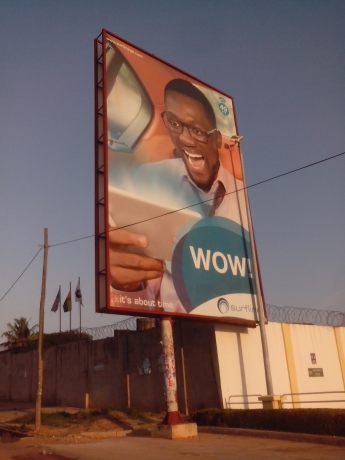
Dr Nicolas Friederici
Alexander von Humboldt Institut Für Internet und Gesellschaft

—
CfP AAG 2016: The productive power of connectivity and entrepreneurship discourses at economic margins
AAG Annual Meeting, San Francisco, March 29 – April 2, 2016
Organizers: Nicolas Friederici and Mark Graham, Oxford Internet Institute, University of Oxford
Two forces of change are increasingly promoted as drivers of socio-economic development at the world’s economic margins: the rise of entrepreneurship and the diffusion of technologies of connectivity (the Internet, mobile phones, and Web-enabled devices). Blogs, newspapers, and donor communication abound with references to sweeping development gains, speaking of “transformation” (The Economist 2014), “technological leapfrogging” (Kimenyi 2015), the “data revolution” (Lawrence 2015), or “acceleration” (Omidyar Network 2013) that are driven by entrepreneurs and the spread of ICTs.
This session asks what the consequences of connectivity and entrepreneurship discourse are for economic life at the margins. We invite a range of disciplinary perspectives, both theoretical and empirical studies, as well as case studies. We ask submitted abstracts to address questions such as:
To be considered for the session, please send your abstract of 250 words or fewer, to: nicolas.friederici@oii.ox.ac.uk and mark.graham@oii.ox.ac.uk.
The deadline for receipt of abstracts is October 19, 2015. Notification of acceptance will be before October 23. All accepted papers will then need to register for the AAG conference before Oct 29 at http://www.aag.org/cs/annualmeeting/register. Accepted papers will be considered for an edited volume edited by the organizers.
References
Kimenyi, Mwangi S. 2015. “Leapfrogging Traditional Service Delivery Constraints in Africa through Mobile Technologies.” The Brookings Institution. March 11. http://www.brookings.edu/blogs/africa-in-focus/posts/2015/03/11-leapfrogging-africa-mobile-technologies-kimenyi.
Lawrence, Neil. 2015. “How Africa Can Benefit from the Data Revolution.” The Guardian, August 25, sec. Media Network. http://www.theguardian.com/media-network/2015/aug/25/africa-benefit-data-science-information.
Omidyar Network. 2013. Accelerating Entrepreneurship in Africa Report. https://www.omidyar.com/sites/default/files/file_archive/insights/ON%20Africa%20Report_April%202013_FInal.pdf.
The Economist. 2014. “The Rise of Africapitalism,” November 20. http://www.economist.com/news/21631956-entrepreneurs-will-transform-africa-says-tony-elumelu-chairman-heirs-holdings-and.